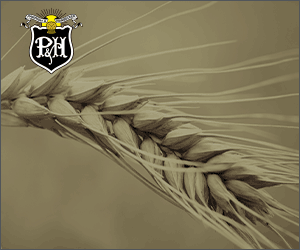Will the new Risk Management Program preserve market access?
FARM GROUPS WHO HAVE PARTICIPATED IN ITS DEVELOPMENT BELIEVE THAT IT WILL AND THAT ITS DESIGN WILL MINIMIZE THE RISK OF TRADE ACTIONS
This article first appeared in Better Pork magazine and is supplied courtesy of AgMedia Inc.
on march 29, the Ontario Government announced new program funding for agriculture. The development of the voluntary, multi-commodity, self-directed Risk Management Program (RMP) has been years in the making, beginning with the Grains and Oilseeds pilot in 2007 and continuing with the work of individual groups and the Ontario Agriculture Sustainability Coalition (OASC).
The RMP is an insurance program to help Ontario farmers offset losses caused by low commodity prices. It is designed so that farmers pay premiums representing 30 per cent of the long-term cost of the insurance program with the federal and provincial governments contributing the remainder in accordance with the traditional 60/40 split. Currently, the province is funding its share of the program without matching federal funds. Producer premiums will be reduced proportionally under a scaled-down version of the program.
In developing the program, non-supply managed farm groups had to grapple with a number of tough questions. Would producers still react to market signals? Would the program trigger expansion? How would the program fit with our trade obligations?
Farm groups answered these questions. By using industry average numbers, producers still have the incentive to be as efficient possible. Premium sharing means producers will continue to take action to reduce losses during periods of low prices.
The trade question is paramount given the fact that market access is extremely important to Ontario agriculture. Any government program can be exposed to a trade action. However, there are many design elements that make RMP less likely to attract a challenge. One consideration in evaluating whether a program will be subject to countervail duties is whether the program is specific. A cost-of-production-based price insurance program is not necessarily specific if:
• it is made generally available; and
• a similar methodology is used to calculate costs in each commodity and
• no commodity makes disproportionate use of the program.
OASC member organizations have been working closely together to ensure these conditions are met. The program that has been announced is a multi-commodity, generally available program.
Another element is that by being a premium-based insurance program, government support would come in the form of a premium subsidy rather than the payout in any given year. This eliminates the possibility that potentially large payouts in any given year would attract a large duty.
Additionally, both premium rates and program payments are linked with AgriStability, a whole farm program that has never been challenged in a trade action. A third-party professional trade opinion also concluded the risk of a successful countervail challenge was low.
Finally, governments are responsible for defending against countervailing duty cases while industry defends anti-dumping cases. Governments and industry have every incentive to design a program in a way that is least likely to attract a duty. The budget announcement is a clear signal that the Ontario government does not believe RMP increases trade risk.
In the coming months, Ontario farm groups will work with the provincial government on final program details and call on the federal government to find a way to fund the program.
Some have openly used trade arguments as an excuse for the federal government not to participate. Ontario farmers and their organizations are prepared to talk honestly about trade. All industry and levels of government need to work together constructively to build on the positive changes that are occurring.
Patrick O’Neil is Ontario Pork Strategist –Markets, Policy and Government Relations. •























